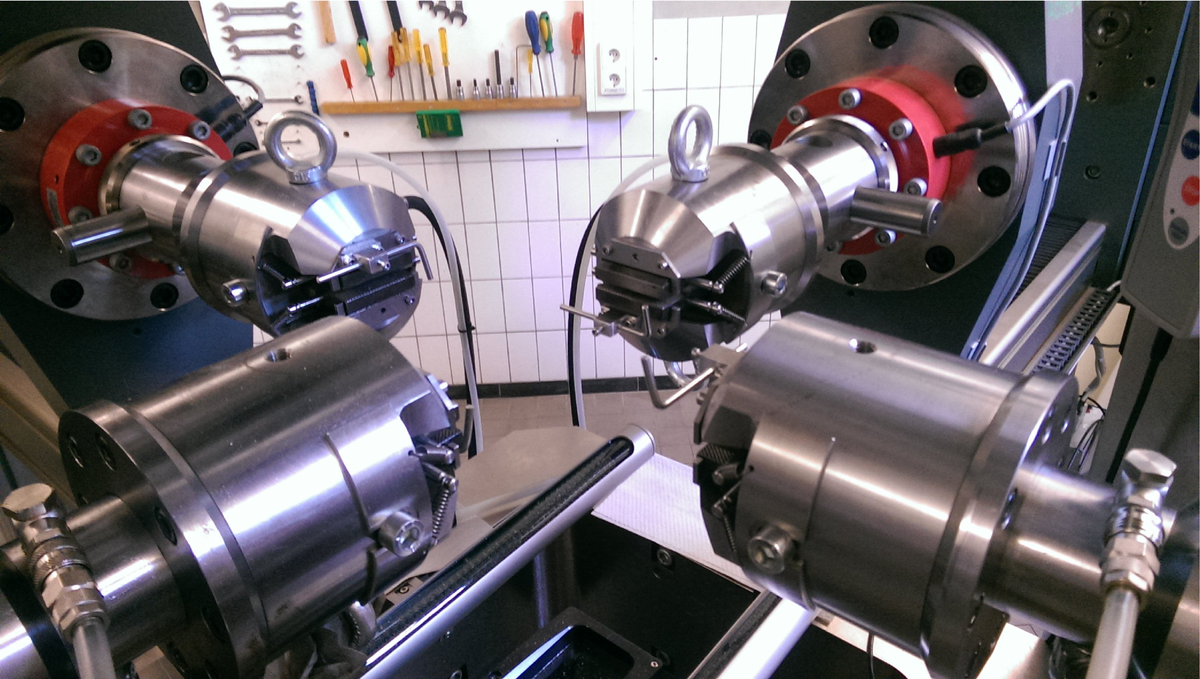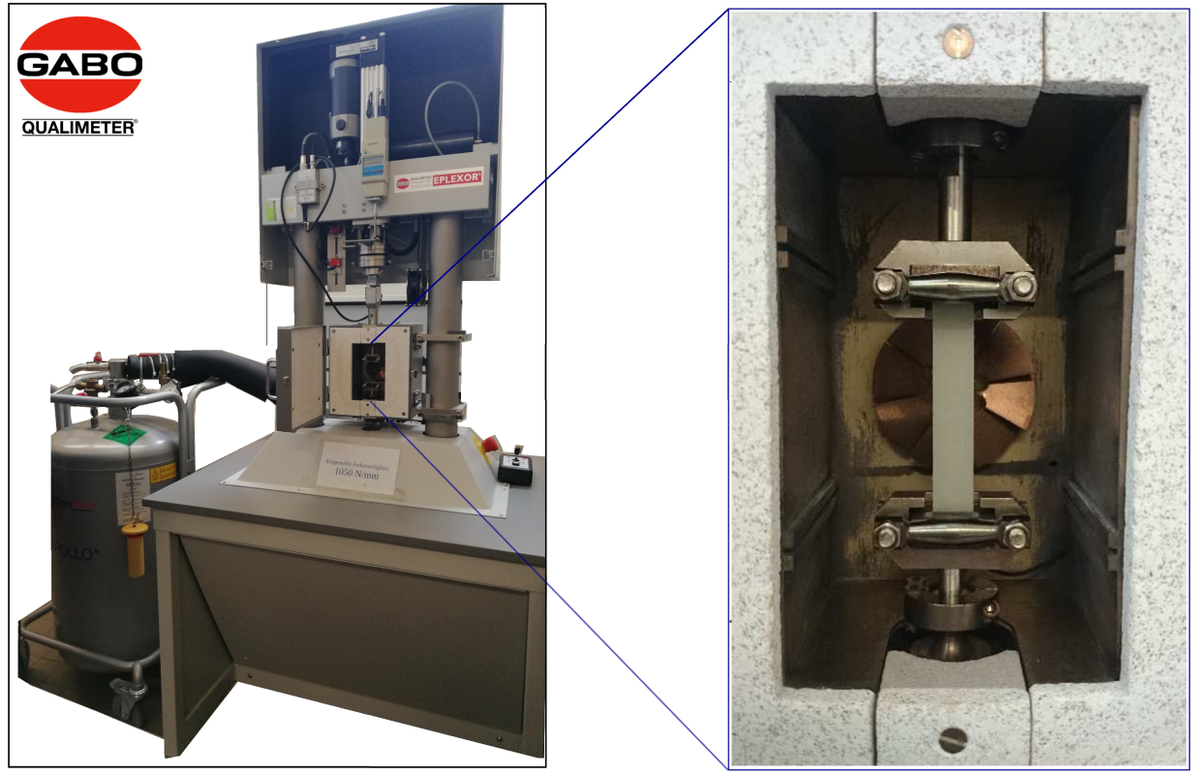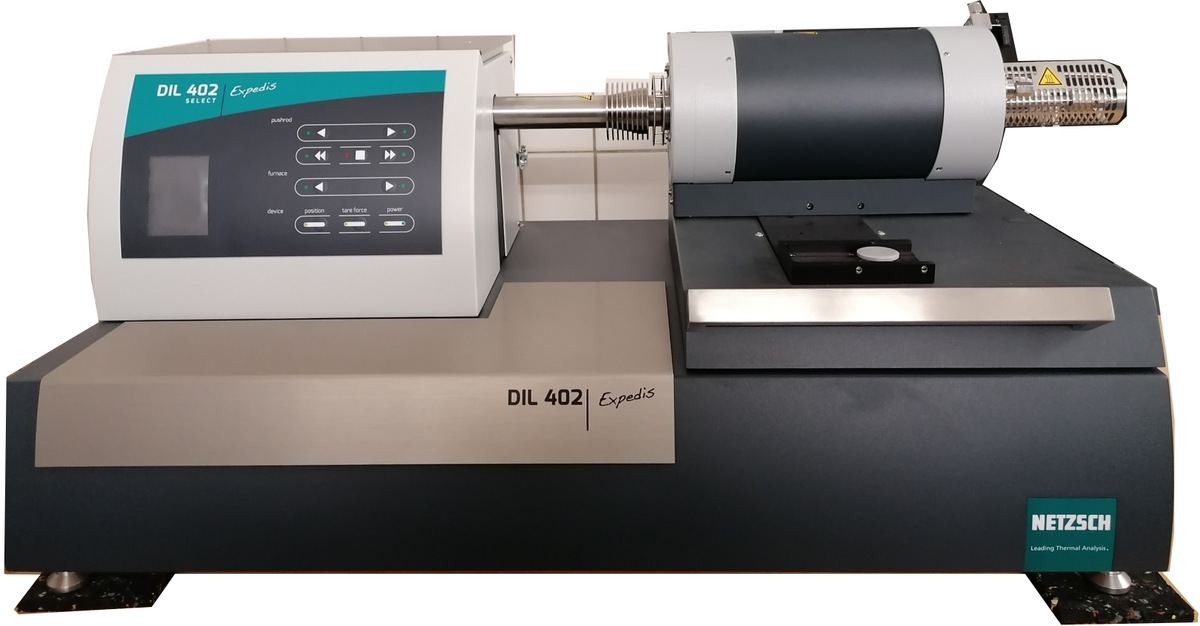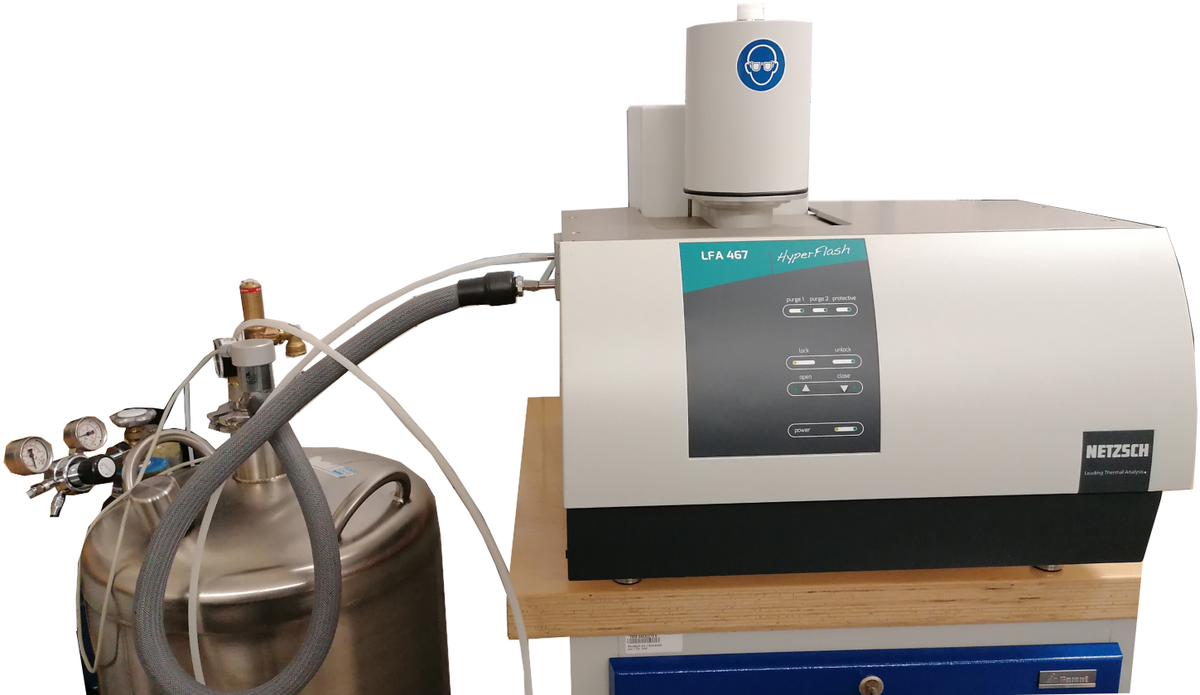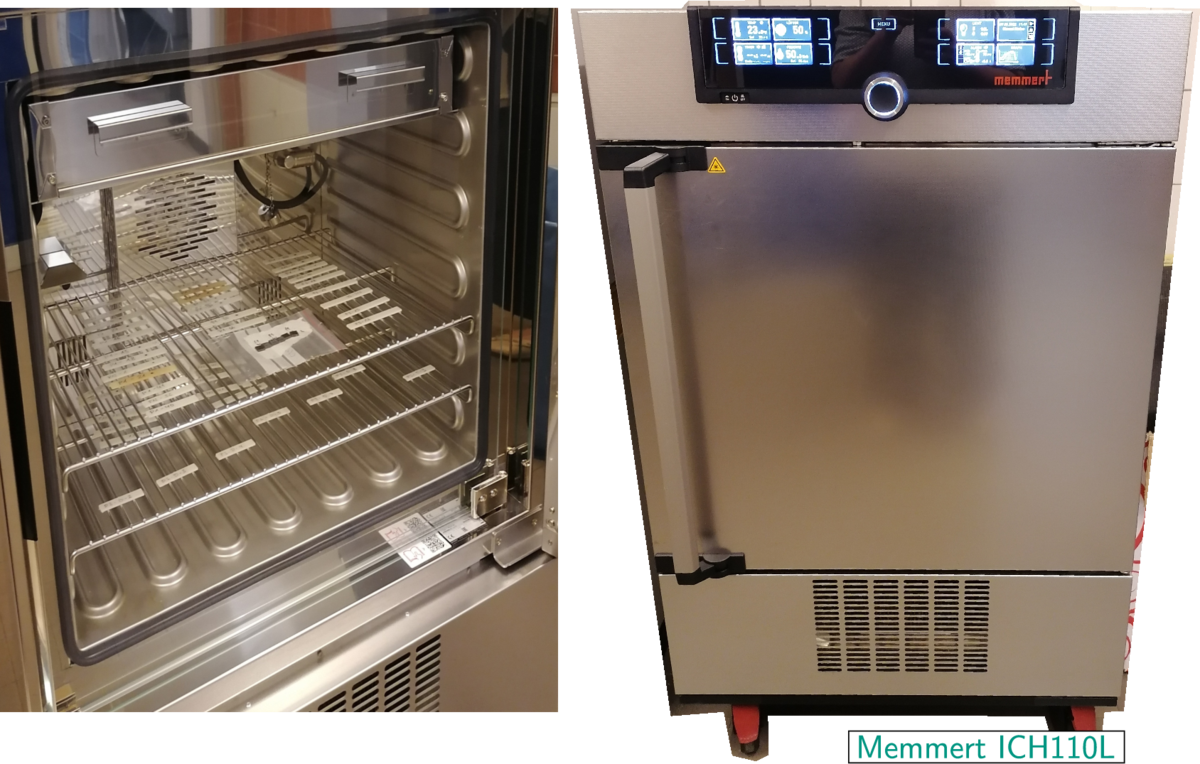Electromechanical biaxial testing device with 4 separately controlled testing axes (Zwick)
| Maximal force | 150 kN |
| Traverse speed | 0,0005 bis 900mm/min |
| Maximum measuring distance of each axis | 700 mm |
| Particularities | Integral optical strain measurement by means of VideoExtens (Zwick) Local optical strain measurement by means of DIC (ARAMIS 3D 4M (GOM)) |
Dynamic mechanical thermal analysis (DMA), EPLEXOR® 500 N (GABO)
| Temperature range | -150°C bis 500°C |
| Strain frequency domain | 0,01 bis 100 Hz |
| Maximal static load | 1500 N |
| Maximal dynamic load | 500 N |
| Load cell capacities | 150 N, 500 N, 1500 N |
| Measuring type | Dynamic mechanical test under tension load (for different temperatures and frequencies, superposition of temperature and frequency loads) Dynamic mechanical bending tests Static tension load (Universal Tester) Relaxation and retardation tests |

